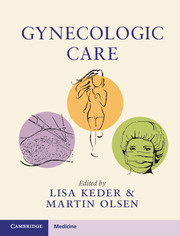Book contents
33 - Uterine Sarcoma
from Section 5 - Gynecologic Oncology
Published online by Cambridge University Press: 01 February 2018
Summary
Introduction
Uterine sarcomas (US) are rare tumors that account for only 1 percent of female gynecologic cancers. Although US represents a small percentage of all uterine cancers, when compared with epithelial endometrial cancer, sarcomas are biologically more aggressive and are associated with a poorer prognosis. This chapter will review the classification, staging, presentation, and evaluation of US in general, as well as describe in detail prognosis and treatments available for the most common sarcomas of the uterine corpus encountered, including leiomyosarcoma (LMS), low-grade endometrial stromal sarcoma (LG-ESS), high-grade endometrial stromal sarcoma (HG-ESS), undifferentiated uterine sarcoma (UUS), and adenosarcoma (AS).
Scope of the Problem
Uterine sarcomas account for 3–5 percent of all uterine cancers, with an incidence ranging from 1.55 to 1.95 per 100,000 women per year. Excluding carcinosarcoma, LMS is the most common US, followed by ESS and then UUS. Abeler and colleagues performed a population-based study in Norway of all US from 1970 to 2000 using the 2003 World Health Organization (WHO) classification system. Excluding carcinosarcoma, LMS accounted for 63 percent of US, followed by ESS (21 percent), undifferentiated endometrial sarcoma (now UUS) (6 percent), AS (6 percent), and other type (<5 percent). Despite representing a small portion of all uterine malignancies, uterine sarcomas are often deadly. The prognosis of women with US has not changed significantly in the past two decades, with an overall five-year survival ranging between 17 percent and 54 percent.
Classification and Staging
The classification and staging of US in adults were both recently revised. The histopathologic classification was changed in 2003 and again in 2013 by the WHO, and now divides US into mesenchymal tumors and mixed epithelial and mesenchymal tumors (Table 33.1). The mesenchymal tumors are further categorized based on the cell type of origin and include LMS, of which there are two rare variants (myxoid and epithelioid), ESS and UUS, among others. The most common mixed epithelial and mesenchymal US include AS and carcinosarcoma, and are composed of both epithelial and mesenchymal elements. However, carcinosarcoma has recently been reclassified as a carcinoma, as they are thought to be derived from a monoclonal neoplastic cell, which has more traits of an epithelial neoplasm than a stromal one.
- Type
- Chapter
- Information
- Gynecologic Care , pp. 317 - 328Publisher: Cambridge University PressPrint publication year: 2018

